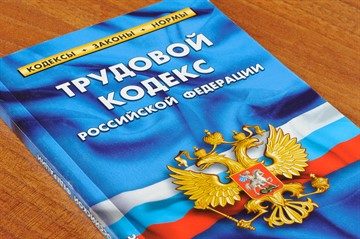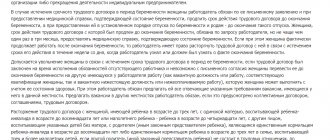Criminal and civil law
In the Criminal Procedure Code, an ex-wife is not considered a relative. Based on the norms of the constitution and legislation, the ex-spouse has the right to refuse to testify in court against close relatives.
According to the Criminal Code, an ex-wife is not a relative, but a member of a family that has lost legal force, created by registering the relationship in the registry office. The most pressing issue is the division of property (apartments, houses, cars) by former spouses.
According to civil law, the wife is considered to be the heir of the first priority. However, from the moment the marriage is officially dissolved, she ceases to be a relative and, as a result, loses the right to receive the spouse’s property.
The ex-wife has the right to claim her husband’s property if she has an obligatory share in the inheritance, is indicated in the will, or the marriage is dissolved after the opening of the inheritance. The gift agreement can be drawn up in the name of the ex-wife, and it will be legitimate.
According to the Family Code, marriage entails the emergence not of kinship, but of property. This means the emergence of a relationship between spouses and their relatives in marriage.
Wife and husband - who are each other?
Both the RF IC and the RF Tax Code exclude spouses from the terminology “close relatives”. It is logical that the husband is in no way related by blood to his wife. Single blood is considered the main criterion for the closest relationship of citizens; accordingly, those who enter into marriage do not belong to them. Thus, spouses are considered to each other not only as interdependent persons, but also as members of the same family, as well as children and parents. Accordingly, in all transactions, spouses will have the same rights or obligations (or will be exempt from them) as relatives called close.
According to the letter of the law, spouses are not relatives at all, and not even close
According to the country's Tax Code, lovers who live together, but have not registered their relationship in the registry office, are not considered relatives of each other, especially close circles, or family members. As for ex-wives and husbands, it’s a little more complicated. For example, if the husband gave his wife a Mercedes, and in the same year the couple divorced, for this tax period the owner of the foreign car is still not obliged to pay tax to the state treasury. To avoid paying a fee for an expensive gift, a woman must tell inspectors about the current situation and provide the Federal Tax Service with documents proving that when she accepted the keys to the vehicle, she was married to its donor. If the ex-husband gives his ex-wife a valuable gift after the divorce, it will be taxed, just like a gift from any other stranger.
Housing Code
There is no concept of “kinship” in the Housing Code.
Instead, the broader concept of “family members” is used, which includes all persons living in the same apartment or house. In the event of a divorce, the right to use residential premises for a spouse who is not the owner of a specific apartment or house is not retained .
If the property is registered in the name of the husband, the court during a divorce may reserve the ex-wife’s right to live in this premises in the absence of other living space and the possibility of acquiring it.
The court may also oblige one of the spouses to pay alimony and support the other for a certain period of time.
Thus, during a divorce, the owner of the premises has the right to evict and deregister former family members.
Is your spouse a close relative or family member?
From the above it is clear that the Civil Code (Article 37), Family Code (Article 14), Administrative Code (Article 25.6) and the Tax Code of the Russian Federation (Article 217) separate the concept of “close relative” and “spouse”.
Since the most complete concept of “close relatives” is given in Article 14 of the Family Code of the Russian Federation and many other branches of law take this concept as a basis, we will proceed from it. It follows from Article 14 of the Family Code that the concept of “close relatives” is based on blood relationship, which the spouses do not possess. According to Article 2 of the Family Code, spouses are recognized only as family members, on an equal basis with parents and children. Consequently, the spouse in family relations is not recognized as a close relative, but only as a family member.
The basis of a family is considered to be a married couple - a man and a woman, and all statistical classifications of family composition are based on the addition of children, relatives, spouses and other relatives and close relatives (in-laws) to this basis. Therefore, the concept of “family member” can be defined as follows: a family member is a person who is in a relationship of marriage, kinship, adoption, property, or actual cohabitation and running a common household with another person.
Modern society knows the following ways of creating a family (family membership): adoption by a single adoptive parent of a minor child; adoption of a child (children) into a foster family by a single caregiver; the birth of a child as a result of the actual cohabitation of his parents; the birth of a child by a single mother; actual cohabitation of a man and a woman; cohabitation of relatives of varying degrees of kinship; union of same-sex persons.
Not all of these family forms are recognized by the Russian legislator.
Is the ex-spouse a close relative or family member?
Kinship relations must be maintained on the date of transfer of property into the ownership of the donee individual. Therefore, if the husband gave his wife a car in 2012, and in 2014 (on the date of filing the return) they were already divorced, then this does not oblige the ex-wife to pay tax on the expensive gift. She will only need to submit a declaration to the tax authority and attach documents confirming the existence of a legal marriage with the donor on the date of receipt of the car.
In a letter dated 10/07/2010 No. 03-04-05/10-606, the Russian Ministry of Finance indicated that the former spouse is not a family member or a close relative; income received under an apartment donation agreement by former spouses is subject to personal income tax.
Are persons in a civil marriage considered close relatives or family members?
Actual marriage relations (the so-called “civil marriage”) currently in Russia do not entail the emergence of family rights and obligations; therefore, the benefits provided for in paragraph 18.1 of Article 217 of the Tax Code do not apply to such relations, since such relations are not legalized between However, only when a gift is made between legal spouses, income tax for an individual is not levied (paragraph 2 of clause 18.1 of Article 217 of the Tax Code).
Labor Code

Based on the letter of the law, close relatives are prohibited from working in the same municipal institution, especially subordinate to each other.
However, if the husband and wife are no longer officially registered as such, then this rule does not apply to them. With the end of the divorce process and the official dissolution of the relationship, the relationship between the two people ceases to exist.
Dear readers! To solve your problem right now, get a free consultation
— contact the on-duty lawyer in the online chat on the right or call:
+7
— Moscow and region.
+7
— St. Petersburg and region.
8
- Other regions of the Russian Federation
You will not need to waste your time and nerves
- an experienced lawyer will take care of solving all your problems!
Blood relations
The answer is actually not as simple as it seems. It all depends on the situation and how one understands direct kinship.

From a biological point of view, spouses are not related. They are two separate independent individuals who produce offspring. Are husband and wife related? No. They have no blood relationship.
By the way, marriages between close relatives are prohibited in Russia. Therefore, even from the point of view of legislation, spouses cannot have common relatives. Otherwise, the marriage will not be concluded in the registry office.
Degree of consanguinity
Relationship degree refers to the number of offspring born between two individuals. They find out who is a direct relative, ascending, descending or collateral, for a variety of legal reasons.
For example, for inheriting material assets, the closer a person’s degree of relationship, the greater his opportunity to inherit property. It could also be a simple desire to make contact or ordinary interest.
The procedure for determining the degree of consanguinity is quite simple and is performed in several stages.
- First of all, the specific person with whom the degree of relationship is being considered is taken into account. In this case, who are these relatives in a direct ascending line? These are parents, grandparents, and so on.
- Then the number of offspring between people is taken into account. This is best done in a descending or ascending straight line. For example, three births occurred between a person and his great-grandmother: grandmother or grandfather, mother or father, and himself.
- It is a little more difficult to calculate the degree of collateral relationship. This can be done schematically by drawing the closest relatives. These come first from brothers and sisters, then from aunts and uncles, followed by great-aunts and uncles. It is also calculated along a descending lateral line, starting with nephews and moving to great-nephews.

Who is not closely related?
There are categories of citizens who are not close relatives of each other. They can only be so in relation to one of the spouses. This list includes:
- cousins/brothers;
- great-grandparents and great-granddaughters/great-grandchildren;
- aunts/uncles and nieces/nephews;
- daughter-in-law/son-in-law, father-in-law/mother-in-law;
- mother-in-law/father-in-law.
By the way! In a civil marriage, the man and woman are not related. They have no right of inheritance. The only exception can be a will.
Mother and son, being the closest relatives, inherit property after each other. After the son’s marriage, the mother-in-law and daughter-in-law will not be related, so there is no right of inheritance between them.
Often, ignorance of the law leads to serious mistakes. Spouses are family members, but not relatives. After a divorce, all ties are broken. For example, a husband gives his wife an expensive gift at the time of marriage (real estate, shares, a car). According to clause 18.1 of Art. 217 of the Tax Code of the Russian Federation, the recipient does not pay personal income tax in the amount of 13% from close relatives or family members. If at the time the wife files her income tax return they are divorced, then this gift is not taxed. Confirmation - marriage certificate at the time of gift delivery and divorce document. All certificates must be attached to the income tax return.
Husband and wife – relatives or not by law: the concept of close kinship and legislation
Who are our closest people?
Are these our spouses, relatives, friends? Often, life circumstances develop in such a way that blood relatives are indifferent to our fate, while the spouse with whom we have lived for decades becomes truly close, an inseparable part. The life of each of us sets its own priorities. However, this is only the moral side of the issue, while the law provides for specific definitions in all areas of life. So, from the point of view of the law, are husband and wife relatives or not? Let's take a closer look.
Is the husband legally related to his wife or not?
For many ordinary people who do not delve into issues of legal subtleties, the answer to this question is obvious, since people who have a blood connection are usually considered relatives. And given the prohibition of Russian laws on concluding unions between close relatives, it follows that a husband and wife a priori cannot be relatives. However, in the codes of the Russian Federation, the answers to this pressing question vary.
So, kinship is a special blood connection that arises between people.
There are 6 degrees of consanguinity (the number of births between relatives is called the degree):
- parents and children, brothers and sisters,
- grandparents and their grandchildren,
- great-grandfathers, great-grandmothers and their great-grandchildren,
- cousins, grandparents, and great-nephews,
- great-aunts and uncles, as well as nephews,
- second cousins.
At the same time, the concepts of close and distant kinship are distinguished. Close relatives are considered to be ancestors and descendants along horizontal and vertical lines, while all others are distant.
Close relationship:
- grandmother grandfather,
- mother father,
- son daughter,
- grandson, granddaughter.
- full brothers, sisters,
- not full brothers, sisters (having only one parent in common).
There is a widespread belief that the concept of close kinship is based on the principle of common genes or, in other words, common blood. However, persons of direct intergenerational kinship (great-grandparents, great-grandfathers), who undoubtedly have common genes, are nevertheless not considered close relatives.
The fact is that only the first two degrees are considered close kinship, that is, relatives with no more than two births between them (parents - children, parents - children - grandchildren). On the other hand, adoptive parents and adopted children who have no blood relationship are recognized as close relatives.
This is primarily due to the fact that, according to existing laws, adoption (or adoption) is actually equivalent to the birth of one’s own child in the family.
Thus, adoptive parents are recognized as full-fledged parents. It should be noted that we are talking specifically about adoption; the agreed formalities have nothing to do with the adoptive family (guardianship).
Family law is fully guided by the above principles and only the first two degrees of kinship are recognized as close relatives.
Thus, according to the RF IC, spouses are not recognized as relatives. However, the RF IC introduces such a concept as “family members,” which includes spouses.
Family members also have a number of advantages:
- widowers, on equal terms with the children and parents of the deceased, have priority rights in matters of inheritance (in the absence of a will),
- spouses have equal rights to all property acquired during marriage.
Criminal Code
In matters of kinship, the Code of Criminal Procedure of the Russian Federation differs significantly from the RF IC and recognizes spouses as close relatives. This state of affairs is not accidental.
In accordance with the Code of Criminal Procedure, close relatives:
- have the right not to testify against each other. In many criminal cases, the evidence base is built precisely on the testimony of witnesses, so the opportunity not to testify is a kind of immunity from pressure from prosecutors,
- do not bear criminal liability in case of failure to report a crime being prepared or committed by his close relative.
Let's look at these issues in more detail and consider the following situations:
- giving false testimony (perjury),
- complicity in crime,
- touching the crime.
Close relatives are most interested in the future fate of the accused.
This is especially true for spouses, who may also have common minor children, property, and debt obligations (mortgages, loans). Not surprisingly, there is a high likelihood of them giving false testimony in order to mislead the authorities about the guilt of the suspect.
However, a false witness can be exposed, prosecuted and criminally punished . Therefore, in order to avoid such a situation, close relatives are given the right not to testify at all. Every citizen is considered innocent until proven otherwise.
Witnesses who are close relatives of the accused are under enormous stress, they are confused, disoriented, and emotionally depressed.
Often, under additional pressure from authorities, relatives provide information that can harm themselves, turning from a witness into an accomplice. In such cases, it is more advisable not to give evidence at all or to give it in the presence of a lawyer.
Touching a crime differs from the concept of direct complicity, but touches on a very sensitive point. The concept of “touching a crime” can be characterized by a situation in which a citizen, aware of an impending crime, does not report it to the authorities.
Who knows you better than others? Who do you spend almost every day with? Who are you constantly in sight of? The answer is obvious - these are the closest ones, this is the family, husbands and wives, sons and daughters. They should have suspected something was wrong, noticed something suspicious and, accordingly, reported what was happening to the authorized body.
Guided by this logic, all close relatives of each accused who did not report his planned crime become involved in the crime and are subject to punishment. Obviously, such logic is irrational.
If a criminal case has been brought against your close relative, first consult with a lawyer about the need and advisability of testifying.
Civil Code
The Civil Code of the Russian Federation operates with the concept of “close relationship”, but does not provide a specific list of persons who can be classified as close relatives.
In matters of family legislation, the Civil Code of the Russian Federation is directly related to the Family Code. The concepts in the Civil Code and the RF IC are closely intertwined, thus, according to the RF IC, in matters of settling civil relations, husband and wife are not relatives to each other, but family members.
Housing Code
The Housing Code of the Russian Federation provides for the concept of “family members,” which include: spouses, as well as children and parents of the owner of the property, but the concept of “close relationship” is completely absent.
All rights and obligations provided for by the RF Housing Code apply to family members. At the same time, any citizen registered by the owner can actually become a member of the family.
Therefore, in housing matters, the presence of consanguinity is not important.
Labor Code
The Labor Code of the Russian Federation also does not provide for the concept of “close relative,” redirecting us again to the RF IC.
The definition of close relationship for the Labor Code is most sensitive in matters of providing vacation days at one’s own expense in the event of the loss of a close relative.
Guided by the definition given by the RF IC, in the event of the death of a spouse, the employer is not obliged to provide the employee with leave at his own expense, since the spouses are not close relatives.
From a moral point of view, this is outrageous. Unfortunately, there are many similar cases in our legislative framework.
The Tax Code of the Russian Federation uses two definitions - a close relative and a family member (or in-law). At the same time, considering both definitions, tax legislation again redirects us to the Family Code, according to which a husband and wife are members of each other’s family.
Spouses have the same privileges as blood relatives in the following tax cases:
- donation _ Profit received as a result of a gift between spouses is not subject to tax. However, there is one caveat - the marriage must be officially registered. A man and woman who live together without registering their relationship in the registry office are not officially considered spouses. In addition, only gifts from current spouses are not taxed; this privilege does not apply to former spouses.
- inheritance . At the time of entry into inheritance rights, the spouse pays only half of the prescribed state duty.
As you can see, in matters of close kinship, even the letter of the law does not have a single definition. Therefore, if a situation arises that requires specificity and clarity in this matter, it is better to seek the help of qualified lawyers.
Loading…
Source: https://e-megion.ru/semeynoe-pravo/yavlyayutsya-li-muzh-i-zhena-blizkimi-rodstvennikami-po-zakonu
Who are considered close relatives by law?
According to the IC, close relatives are:
- Children and parents.
- Grandparents and grandchildren.
- Other persons in the ascending and direct line are full and half-sisters and brothers.
The latter are separated into a separate category, but at the same time they belong to the general circle of close relatives. The definition in question is mentioned in the article formulating obstacles to marriage. It also contains references to adopted children and adoptive parents.
The most general concept of relatives recognized as close is concentrated in Article 14 of the domestic Family Code (FC). Close relatives according to the Family Code of the Russian Federation are none other than:
- Vertical relatives, i.e. grandfather, grandmother, mother, father, son, daughter, grandson, granddaughter.
- Relatives horizontally, i.e. brother, sister. In this case, either two parents or just one can be common, i.e. a half-brother or sister is also recognized as close relatives.
The definition of close relationship is based on the principle of common blood. It follows from this that a husband or wife is not recognized by family law as close relatives, since there is no blood relationship.
Despite the presence of a blood relationship with a great-grandmother (great-grandfather) or great-grandchildren, the latter are not close relatives according to the RF IC.
At the same time, there is a category of persons who are recognized as close relatives according to the family code and are classified according to the first group. Such persons are adopted people or adoptive parents, since the relationships that arise after adoption are identical to the relationships between parents and children, although they are not based on blood kinship.
The rest of the relatives (uncle, aunt, cousin, cousin, nephew, etc.), including those from the spouse’s side (mother-in-law, mother-in-law, son-in-law, daughter-in-law, etc.) are considered by law as brothers-in-law, since the family code recognizes them as property relations.
Relationships of property also occur in relationships with a stepfather, stepdaughter or stepson.
From the point of view of the law, the following are not considered as brothers-in-law or relatives:
- common-law husband (wife);
- guardian;
- sister's husband (brother's wife).
Guided by the theory of Family Law, close kinship will only be a blood connection. This means that only those relatives whose connection goes back to a common ancestor or a connection due to the descent of one person from another will be recognized as such.
This issue worries people, because some family members are not close to the law. Which, in turn, gives rise to controversial situations related to such problems as determining the status of relatives, whose role is not clear enough.
- brother, sister;
- children (this should include adopted children as well as adopted children);
- parents;
- parents' parents, i.e. grandparents;
- grandchildren.
All of the above are from the code and are included in the circle of loved ones determined by Federal Law.
Despite the clear list of members that fit the mentioned definition, ambiguous situations often arise. Let's look at the main ones.







